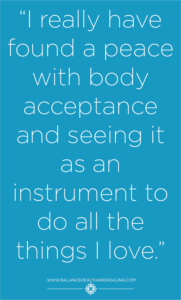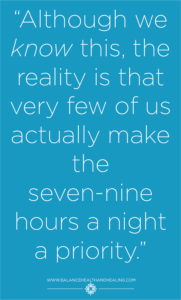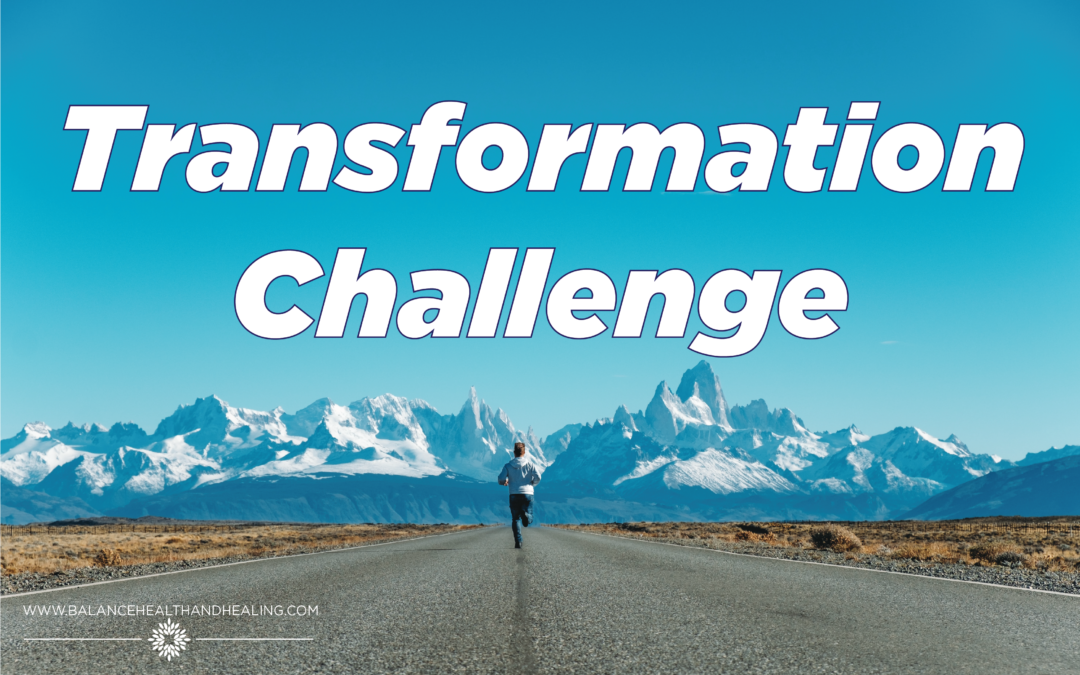Like I’ve mentioned before, I’m a fitness coach at Orange Theory Fitness and we just finished an 8-week long transformation challenge as a company.
If you know me, you know that my turmoil was pretty high when I heard we’d be doing it and that I was encouraged to 1) participate and 2) recommend it to members.
I’ve been working here at Balance Health & Healing since 2016. And since that time, my ideals have changed dramatically. I don’t weigh myself anymore, I don’t count calories, I try to eat and exercise intuitively. I really have found a peace with body acceptance and seeing it as an instrument to do all the things I love. So, the idea of a “transformation” challenge didn’t sit well.
count calories, I try to eat and exercise intuitively. I really have found a peace with body acceptance and seeing it as an instrument to do all the things I love. So, the idea of a “transformation” challenge didn’t sit well.
First of all, I didn’t love the word transformation. That word feels like your body is something you need to transform. I didn’t want to stand behind something I didn’t believe in, but I also recognized it was my job. Kind of stuck between a rock and a hard place. So, I spent a lot of time pondering. What is something positive that could come out of this? What can I portray as positive “transformation?”
After lots of thought and research, I came up with the following three things that I believe will improve quality of life. I encouraged all of the members participating to focus on:
Drink enough water.
One of the simplest, yet most important aspects of our health is hydration. (Which shouldn’t be incredibly surprising, seeing that the human body is made up of approximately 60% water).
- Being properly hydrated helps regulate body temperature. When our core body temperature rises above normal, unnecessary stress is placed on our bodies. Often, that interferes with the body’s energy system and negatively affects both performance and recovery.
- Water also helps regulate blood pressure. Effectively regulated blood pressure normalizes heart rate, which therefore keeps our bodies moving properly.
- Water also helps move and transport essential energy nutrients. All of our essential macronutrients (carbohydrates, protein and fats) that are used for energy are transported by fluid in the body. And as a bonus, water helps remove any metabolic waste that is produced during exercise.
- Not only does water keep our energy sources working, it improves brain function. Studies have shown that even just mild dehydration can impair your mood, energy levels and lead to major reductions in memory and brain performance.
- Water protects sensitive tissues, lubricates and cushions your joints and every cell, tissues and organ in your body needs water to work properly. I think I’ve made my point. Stay hydrated. The National Academies of Sciences, Engineering and Medicine have determined that adequate daily fluid intake is about 16 cups of water for men, and about 12 cups of water for women. I know that water intake is very individualized and will vary person to person, but my point was for myself and the members to stay hydrated.
Get enough sleep.
 Ah. This is a hard one. Whenever a member would come talk to me about goals, one of the first things I always ask is, “Are you getting enough sleep?” Like water, sleep is vital for overall health and well-being. Although we know this, the reality is that very few of us actually make the seven-nine hours a night a priority. Our sleep needs vary over our lifespan, and everybody is different when it comes to how much sleep you personally need. However, the National Sleep Foundation recommends 18-64 year old’s anywhere from 7-9 hours of sleep per night. (You can get more information on how to find out how much sleep you need here)
Ah. This is a hard one. Whenever a member would come talk to me about goals, one of the first things I always ask is, “Are you getting enough sleep?” Like water, sleep is vital for overall health and well-being. Although we know this, the reality is that very few of us actually make the seven-nine hours a night a priority. Our sleep needs vary over our lifespan, and everybody is different when it comes to how much sleep you personally need. However, the National Sleep Foundation recommends 18-64 year old’s anywhere from 7-9 hours of sleep per night. (You can get more information on how to find out how much sleep you need here)
I am someone who loves sleep. I do really well on 8 hours, but that is a hard commitment to hold! My husband loves to watch movies, and by the time we wrap up our jam-packed day, it’s late. Over the last 3 years, I’ve really tried to shift into more of a morning person (because studies show we are most productive in the morning). But if I am up at 6 am and need 8 hours of sleep, I need to be ASLEEP by 10! It’s a big commitment. However, in the 8-week challenge I did my best to average 8 hours a night, and boy, it makes such a difference!
Take the time to recover.
This goes hand-in-hand with sleep, but recovery is vital to a quality life. There are so many different definitions of recovery, but a few things I tried to focus on were:
- Take time to rest during your day. 20-minute cat naps do wonders!
- Foam roll. If you’ve ever done it before, you know foam rolling isn’t fun (read: OUCH), but it is a necessary evil to help prevent DOMS (Delayed Onset Muscle Soreness). It can also help prevent injuries, increase range of motion and improve performance.
- Stretching for 2-3 times a week
- Recover mentally & emotionally. When you get home from work, unplug. Play outside. Go on walks. Devote time to personal relationships and find other interests. I love to puzzle, but I can always find a million excuses as to why I shouldn’t start one. So these last few weeks, I’ve set one up and just worked on it a little bit at a time. It’s been so good for my creativity, my stress, and honestly my play. Recovering mentally and emotionally is usually on the bottom of our list, but it is just as important for a well-balanced life as all the other things I listed above.
Changing my mindset about the transformation challenge really did make it a cool experience for me. Focusing on small and simple, yet highly important aspects of health and wellness was a great reminder for myself to set goals. Sometimes I get a little lackadaisical about goal-setting, but it is an important piece of our life to improve and to grow. I have no idea if I lost or gained a single pound or body fat percentage or any muscle growth, because that wasn’t my focus. Drinking water, resting and recovering were my focus, and it was a really nice 8 weeks.
Resources:
How Hydration Affects Performance – link
How Much Water Should You Drink Every Day? – link
How Much Sleep Do We Really Need? Sleep Foundation – link
Leadership Survival Skills Workshop – link

